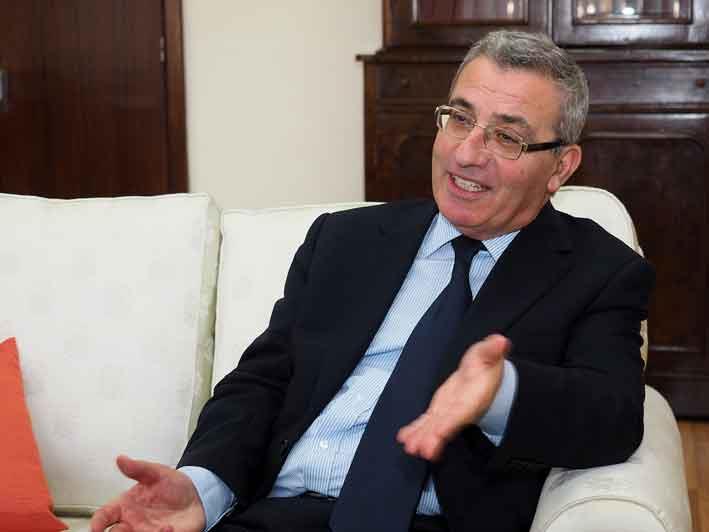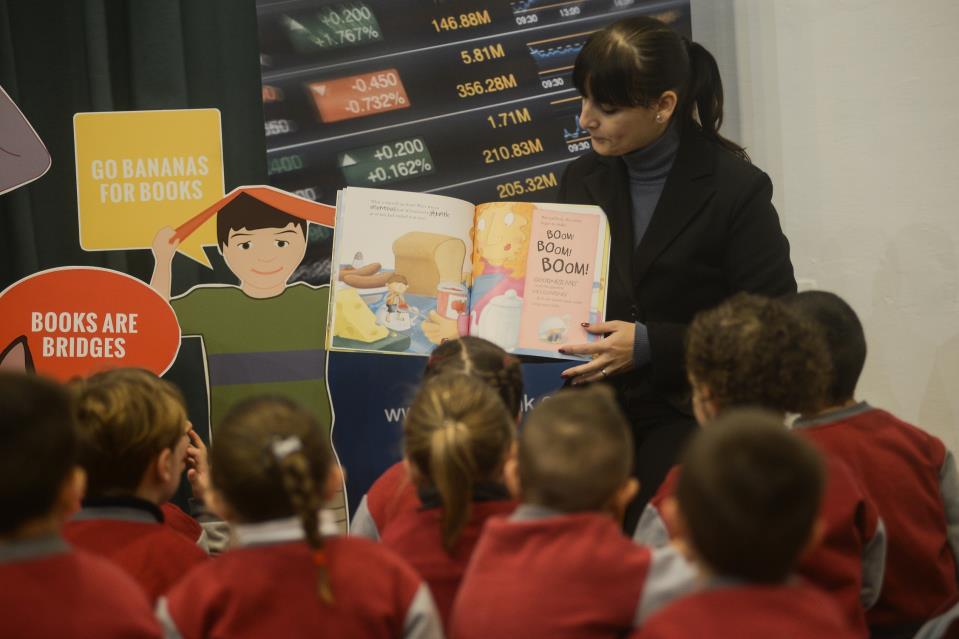Having all young people in education, training or employment and encouraging pluralism in tertiary education was a pledge made by the Labour Party. The Education Ministry implemented a holistic plan to tackle absenteeism from school and is now working on creating a meaningful educational programme that encourages students to stay in school. In an interview with Therese Bonnici, Minister Evarist Bartolo discusses the successes and shortcomings within the educational sector.
As from the start of this legislature, the government said it will come down hard on school absenteeism and a holistic plan to improve attendance was implemented. What is the result today?
The plan was indeed successful. The cash transfer measure has evidently worked as it served to encourage student to attend school regularly while imposing sanctions. However, we then faced a new challenge because some of the students who regularly missed school started to attend and teachers complained that they’ve disturbed the entire class. But let’s not forget that it is ultimately our responsibility to ensure that each child is educated. We should not talk about school drop-outs but rather about students who are ‘pushed out.’ There are a number of reasons that have been interlinked with absenteeism, such as family problems.
Our duty is to create school programmes that are attractive enough for these children because it is understandable that students do not look forward to sitting on their desks all day long. I’m not talking about increasing outings, but rather about allowing students to learn by doing. How do we give our children a meaningful education? It’s not as straight-forward as it sounds because the mentality has to change and that it takes time.
Around the world, 57 million children do not attend school and worse than that, around the world 350 million students leave school without having the necessary qualifications or experience to enter the workforce. Countries are now getting grip of the reality that a standardised educational system does not work. In education, we are moving towards personalization.

Is the Alternative Learning Programming reaping positive and permanent results?
The ALP is offering a bridge towards the workforce. Students are being given the opportunity to experience the workplace and to acknowledge that ethics, punctuality and good behavior are indispensible. When students are treated like young adults, they might behave as young adults. Some of the students interested in the hospitality sector had the chance to prepare meals for residents at Villa Chelsea.
We do not plan to train them for a specific job, but rather we want to provide them with the social and personal skills that make them employable. We will now be setting up an alternative learning scheme that opens possibilities for these students to further their education at MCAST and ITS, without having to repeat the foundation course. At this point, there is a dead-end in our education system, because it is the SEC examinations that matter.
Between 2012 and 2013, 495 did not sit for one SEC exam out of 2,893 fifth-form students, and 218 did not obtain a pass mark in any of the compulsory subjects. That is extremely worrying. We have a one-size fits all syllabus, and it’s time to find different methods for teaching subjects.

Last November, the Finance Minister announced the possibility of staggering school opening times to reduce morning traffic. So far the Education Ministry has not commented on the plan.
At this stage, information is still being collected, but one thing is certain – formal school hours will not be extended. Representatives of the transport ministry have recommended that opening of school hours are staggered, some might start at 8:15, others at 8:30am for example. But in all honestly, I highly doubt that it will ease traffic flow.
The Malta Union of Teachers had proposed that secondary school students are eligible to free or subsidised bus tickets, but that can’t be done as yet, because the previous administration had agreed on a seven-year contract with transport companies. Such a proposal should be considered, but when the end of those seven-years approaches.

A couple of weeks ago, teachers at Liceo reported to work late because of behaviour issues. Students have been reported assaulting teachers and walking in school at any time they wish. How are such cases being dealt with?
The situation has calmed down. We’ve met with teachers, parents and representatives of the teachers’ union to discuss the best way forward, and an alternative learning programme for misbehaved students has been created. Cameras have been installed in the school, yet it might not necessarily make sense to install these in all local schools. I’m apprehensive about turning our schools into prisons. We need to address these things from the root. Are we presenting a meaningful education these children?
If a child has gone through difficult experiences of loss and criminality, how could you expect him to behave well in school? Schools can do quite a bit, but parents need to co-operate. Students who are loved, even within the school will take a different approach. How will calling them delinquent or ‘good for nothing’ help?
Let’s be clear. I’m not expecting that teachers become superheroes, because I acknowledge the difficulties they face in class. But we need to provide love to these adolescents. Being affectionate and enforcing discipline go together. Students will not accept it immediately but gradually they will start to trust you.
Groups of secondary school students were taken for a training session with the army and anyone who misbehaved was given laps to run. It’s not about being evil, it’s about enforcing discipline. The student might not understand it the first time but he will the second time.
A teacher’s advice can help a student shy away from criminality. A child may have low-aspirations within the family, and then they go to school and told they are hopeless. What chance do they have? Who is dreaming for these children? The school is an arena where all these challenges come together and it is not only the teacher who should shoulder responsibility. Educators and parents need to collaborate.

Back in June 2014, you said it is time for Malta to start discussing raising the school age to 18. Has that been put aside?
The easiest thing to do would be to compile a draft law to raise the school age and tabling it in parliament. But where does that get us? Obliging students to continue school may not be as efficient. Portugal has recently brought the compulsory school age to 18 and inevitably, the number of students attending has increased. But are they leaving school with the necessary qualifications and experience to get a decent job?
It is clear that you can’t force education. I’d rather we set up a programme that encourages them to willingly continue educating themselves. We are aiming to have all young people either in education, in training or in the workforce. The desired goal is not simply getting them to school, but developing their skills.

A number of foreign students are enrolling in local schools and there have been complaints that some of the students are proficient neither in English or in Maltese. How is this being tackled?
We are still addressing this issue. We can’t have these children starting the school year at any point in the scholastic calendar, because that is disruptive both for them and their peers. They need to have a separate programme where they learn Maltese and English before entering class.
Inevitably, the usage of the English language for teaching has increased. But we need students proficient in both Maltese and English and we do not agree with parents who do not want their children to learn Maltese. That is not fair.

There is high demand for Klabb 3-16. Are there plans to extend the service?
We’ve asked the Foundation for Educational Services (FES) to revisit the programme and find ways of improving it. We need a better linkage of what is taught during the morning, and what is taught during after school hours. We need to assist the students with certain subjects, but at the same time we can’t have a stretch of formal academic hours. There are already literacy programmes implemented, and we’re thinking of language clubs, allowing students to learn an additional language. We’ve even had a demand for additional classes for ethics and sciences.
What’s next on the education ministry timeline?
We need to better interlink childcare with primary, secondary and post-secondary school. The childcare has so far been promoted as a labour-activation measure, but it is not just that – it also has its educational benefits. The earlier we assist students in skills they require, the better.
During the secondary year, we need to start providing diverse pathways. A one-size fits all does not work. We can’t have so many students finishing compulsory school with nothing to show.